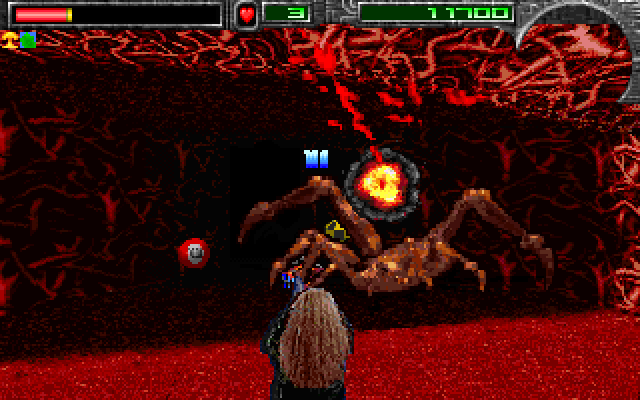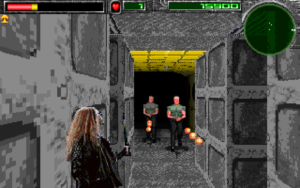Virtuoso, the dead end of the rockstar fantasy 
Rock is dead. Not the music, because the music continues to live on. It’s taken on other forms like punk and indie rock, or even been absorbed into the big umbrella of pop music. But as a cultural movement, rock is history. As music journalists have noted, the idea of “rock” is aging and has fallen out of relevance. It’s no longer the cultural institution that it was 50 years ago in the era of Led Zeppelin and the Rolling Stones, or even 30 years ago, when bands like Guns N’ Roses were a polarizing force in pop culture.
And it’s difficult to imagine anything about rock that’s more dated than the idea of the rockstar. Fame has never stopped being attractive, especially in show business, but the specific image of the rockstar – the hedonistic bad boy in a leather jacket who turns heads on- and off-stage with their self-destructive antics – feels hopelessly out-of-date. On the one hand, the aesthetic of looking like David Lee Roth is uncool now, which is nothing he could’ve helped because coolness always becomes uncool with time.
But what’s really shown its age is that there’s a kernel of ugly selfishness in the rockstar fantasy that’s become more pronounced over the years. It’s cute and a little glamorous when it’s just Mick Jagger getting high and thumbing his nose at authority, but as the genre wore on into the late 90s into the pissed-off era of nu metal and its ilk, the self-righteous anger behind the rockstar persona became more palpable. Maybe it’s a cheap shot to invoke the specter of Woodstock ’99, a music festival that was infamously marred by violence and destruction, but it represents a low point for rock. Twenty years later, when the biggest stars in music are using their fame as a platform to draw attention to injustice, the image of a famous rich white dude singing about getting mad and breaking shit like he’s still owed something, well, it sucks – the greatest condemnation one can make of rock.
Virtuoso predates that era by a little bit, but it imagines rock ‘n’ roll going down a similar road, and it has an absurdly bleak vision for the future of rock. The hero of Virtuoso is the ultimate badass world-famous rock god, and he hates it.
See, our hero has gotten fed up with the rockstar lifestyle. Music isn’t giving him the same thrills anymore, and after too many nights hiding in his hotel from his adoring fans, unable to live his life freely, he decides that his only escape is virtual reality. He loads up a virtual shotgun, puts on his virtual Ray-Bans, and jumps into a VR simulation where he can just kill stuff for a while.
If this is what the hero does to unwind, he’s taking absolutely no pleasure in it. He wanders through virtual reality with bored stoicism, tiredly shooting at whatever he sees while hard rock music blasts in the background. The game has no clue how to make this exciting. Its only idea – being able to lean against the walls to duck around gunfire – is only ever applied half-heartedly, and the rest of the game is just as unenthusiastic. It takes for granted that the ultimate rockstar would be a stiff, burned-out husk of a human being and that this is supposed to be awesome.
There was another hard rock shooter released in the same year, Revolution X, in which you help Aerosmith fight back against an oppressive government that wants to ban music. It’s an extraordinarily goofy game, but it is, at the very least, about using the power of rock to fight the system. Virtuoso takes that one step further, and instead of going against authority, it’s going against society. Everything sucks, and the solution is to use rock music to wall yourself off from reality altogether. It’s a difference of degrees, but it’s chasing the same idea – raging against the world through rock ‘n’ roll – into a lonely dead end.
Nearly three decades years removed from the release of Virtuoso, it seems so grim! Its idea of coolness is just nihilism with more guitars.
But the passage of time has also made this exercise in edginess much, much funnier. Virtuoso was never cool, and now it’s even less cool. The live-action main character looks like Dave Mustaine from Megadeth having a bad day. You can picture the developer who had to put on a rockstar costume and a wig, sulking in front of a blue screen with a fake shotgun in his hands.
To make this even more ridiculous, the game usually doesn’t even send you to a dark, gritty location to match the tone that it’s going for. Instead, you get to travel to a snow-covered haunted house guarded by evil snowmen, or you can go shoot angry crabs at the beach, our hero always wearing the same dead-serious pissed-off expression while drums blare over the sound of gunshots and crabs. Hell yeah! Rock ‘n’ roll!

Maybe the spiders you fight on Mars are a reference to the David Bowie album. Or maybe they’re just cool spiders
It was always trying too hard, and with the heyday of rock now long behind us, it’s even sillier that this was ever supposed to be badass. The real kicker is the soundtrack: seven tracks of scuzzy off-pitch grunge music with blunt, misanthropic song titles like “Past Caring” and “Bitch.” It was performed by a local group called Thai Dyed Suicide, which, according to the manual, went through a series of tumultuous lineup changes prior to recording their music for the game. They never signed with a label and never released an album. The only evidence that this short-lived, sludgy band ever existed is that they were immortalized in Virtuoso, a game about a guy who thinks the world sucks.
Looking back on the game now, while it’s goofy as hell, the idea seems to have come from a real place of resentment that was simmering underneath rock music, whether they knew it or not. Virtuoso wanted to make you feel like a rockstar, but between its dead-eyed hero and Thai Dyed Suicide screaming from the sidelines, it ended up with something angrier, sloppier, and awesomely bad: a monument to rock on the verge of burning out.



Wow, the title screen looks like it belongs to a completely different game. I’m sure I’d rather play that hypothetical game.
I wasn’t aware that musicians stopped living hedonistic, burnout lifestyles & trashing hotel suites, etc., “white” or otherwise. The genre(s) has changed; the behavior remains — so what’s the point you’re trying to make here? Would it be any different if it was a guy who bore a passing resemblance to 50 Cent clunkily ambling around levels with two Uzis, while knockoff Def Jam wannabe music blared in the background?
Hi Colin! What I was trying to get at is that Virtuoso‘s idea of a rockstar started to lose its cultural relevance shortly after the game came out. That specific image of a nihilistic dude in a leather jacket with a guitar feels so ancient and uncool today, even though there was a brief moment when it was apparently in. You’re right that there’s been no shortage of music superstar stereotypes since then, and I could see something like 50 Cent: Bulletproof or one of the Def Jam games looking like camp in another 10 years, just that Virtuoso has already reached that point. It’s a weird time capsule of this moment of coolness.
They already are.